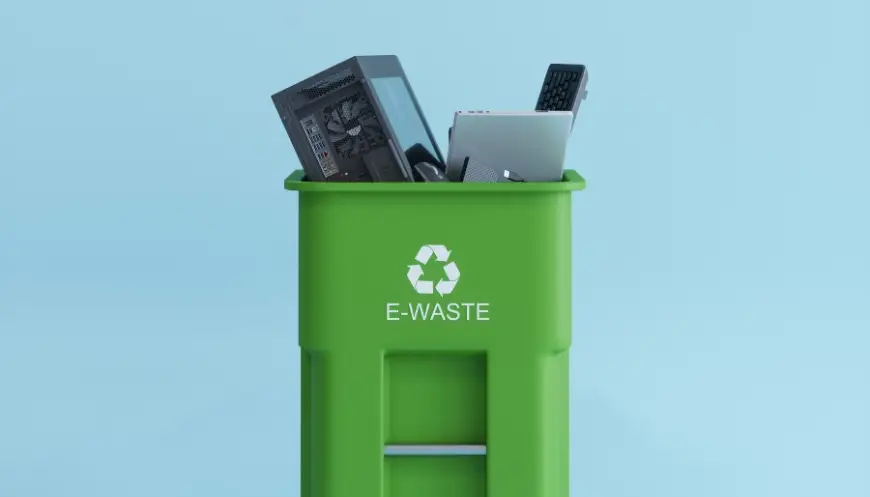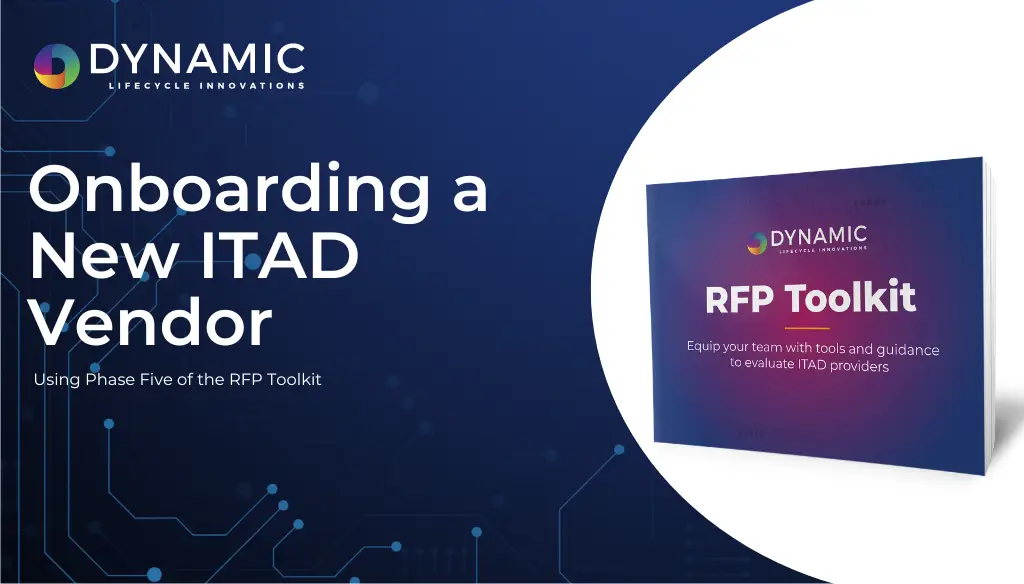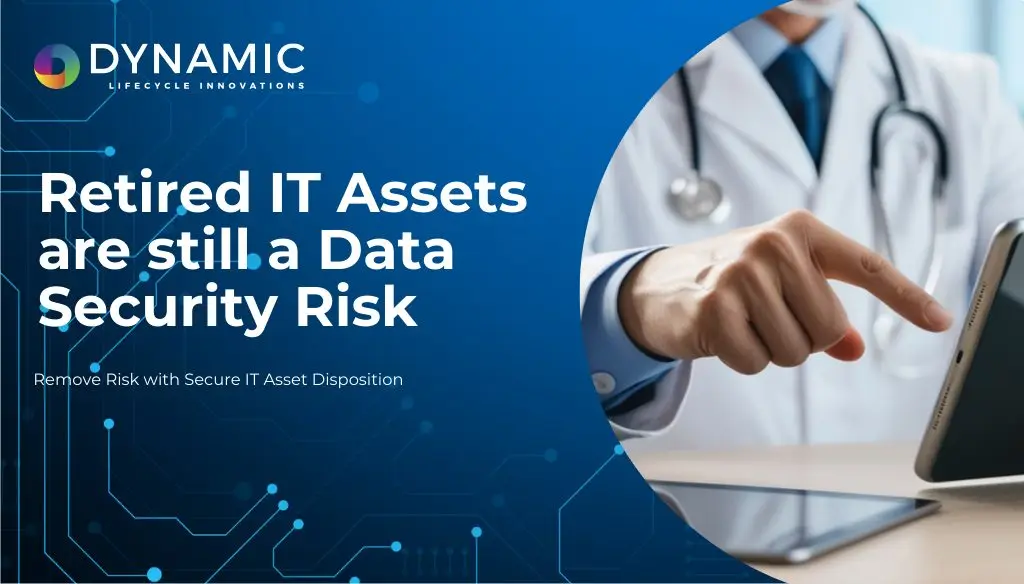As the volume of electronic waste (e-waste) continues to grow, so does the complexity of regulations surrounding its proper disposal. In the United States and globally, e-waste is subject to a patchwork of federal, state, and international laws that govern how electronic devices must be managed at the end of their life cycle. For businesses, staying compliant isn’t just a legal necessity—it’s a matter of protecting your brand, your data, and the environment.
At Dynamic Lifecycle Innovations, we help businesses stay ahead of ever-evolving e-waste regulations with customized recycling programs and compliance support. Here’s what you need to know to keep your organization on the right track.
Why E-Waste Compliance Matters
Improper disposal of electronic devices can expose businesses to:
- Hefty fines for violating environmental or data protection laws.
- Reputational damage from publicized breaches or unsafe disposal.
- Loss of sensitive data from improperly wiped or unsecured hardware.
- Missed opportunities to meet Environmental, Social, and Governance (ESG) goals.
With e-waste classified as hazardous in many jurisdictions due to toxic materials like lead, mercury, and cadmium, compliance is not optional—it’s essential.
Key U.S. E-Waste Regulations Businesses Should Understand
1. State-Specific E-Waste Recycling Laws
The U.S. does not have a unified federal law governing e-waste recycling. Instead, 25 states and the District of Columbia have their own e-waste legislation. These laws vary significantly in terms of:
- Covered devices (e.g., monitors, printers, cell phones).
- Producer responsibilities under Extended Producer Responsibility (EPR) programs.
- Requirements for recycling certification or reporting.
For example:
- California has the Electronic Waste Recycling Act, which includes a fee-based system for certain covered devices.
- New York mandates manufacturers provide free and convenient recycling programs for consumers.
- Illinois requires electronics manufacturers to collect and recycle a percentage of their products each year.
Because of these differences, businesses operating in multiple states must be especially diligent about meeting each state’s requirements.
2. Data Security Regulations (NIST, HIPAA, GLBA, etc.)
Many electronic devices contain sensitive information—from customer records to proprietary data. Failing to securely destroy data prior to recycling can violate:
- NIST SP 800-88 Rev. 1 – Guidelines for media sanitization that many organizations adopt as best practice.
- HIPAA – Requires secure disposal of any electronic device containing Protected Health Information (PHI).
- Gramm-Leach-Bliley Act (GLBA) – Enforces data protection in financial institutions.
- FACTA – Mandates secure disposal of consumer information.
Dynamic Lifecycle Innovations ensures full compliance with NIST 800-88 standards and offers certified data destruction methods, including on-site shredding and serialized reporting.
3. International Considerations: The Basel Convention
Businesses with global operations or supply chains should be aware of the Basel Convention on the Control of Transboundary Movements of Hazardous Wastes. This international treaty restricts the export of hazardous e-waste to developing countries.
While the U.S. has signed but not ratified the Basel Convention, many business partners abroad are subject to its rules. Dynamic Lifecycle Innovations ensures international compliance through certified downstream vendors and chain-of-custody documentation.
How Dynamic Lifecycle Innovations Helps You Stay Compliant
Staying compliant with the web of e-waste regulations can be challenging—but it doesn’t have to be. Dynamic Lifecycle Innovations offers a full suite of services designed to make compliance simple, scalable, and secure:
Tailored Compliance Programs
We work with each client to understand applicable laws in their jurisdiction and design a program that meets state, federal, and industry-specific requirements.
Certified Processes and Documentation
We are certified to R2v3, NAID, and e-Stewards standards, and we provide the documentation your auditors and regulators require—such as serialized asset tracking, certificates of data destruction, and downstream vendor transparency.
Secure Data Destruction
Our services include both physical and digital data sanitization that comply with the most stringent standards, protecting your business from data breaches and associated liabilities.
Regulatory Expertise
Our team actively monitors changes in legislation so that you don’t have to. We help ensure that your e-waste program stays up-to-date, even as rules evolve.
The Bottom Line
E-waste regulations are not just about environmental responsibility—they’re about protecting your business from legal, financial, and reputational risks. By understanding key regulations and partnering with a trusted provider like Dynamic Lifecycle Innovations, you can build a compliant and sustainable e-recycling program that benefits both your bottom line and the planet.
Want to ensure your business stays compliant with e-waste and data destruction regulations? Contact Dynamic Lifecycle Innovations to get started with a secure and customized solution.











